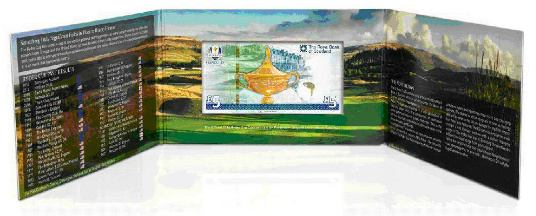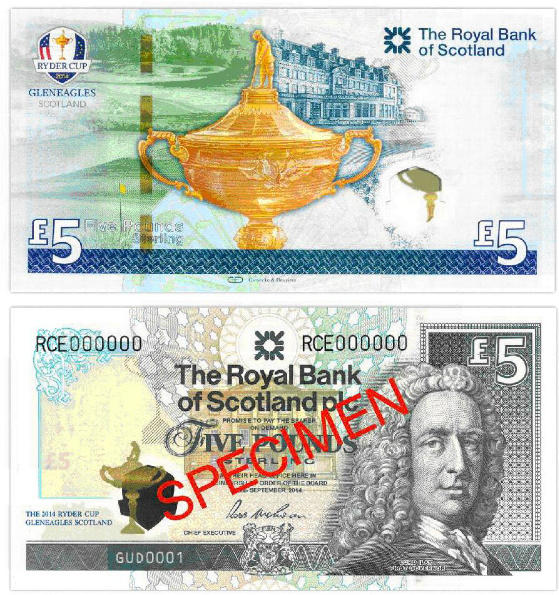 Last year the National Bank of Poland (NBP, Narodowi Bank Polski) announced that a commemorative note would be issued in August 2014 commemorating the 100th anniversary of the formation of the Polish Legions by marshall and statesman Josef Pilsudski. These legions were officialy formed with an order by Pilsudski issued on 22 August 1914. The new notes will however be issued on 5 August 2014. Exactly 50.000 notes will be sold as numismatic products and will be featuring the portrait of Jozef Pilsudski designed by Andrzej Heidrich.
Last year the National Bank of Poland (NBP, Narodowi Bank Polski) announced that a commemorative note would be issued in August 2014 commemorating the 100th anniversary of the formation of the Polish Legions by marshall and statesman Josef Pilsudski. These legions were officialy formed with an order by Pilsudski issued on 22 August 1914. The new notes will however be issued on 5 August 2014. Exactly 50.000 notes will be sold as numismatic products and will be featuring the portrait of Jozef Pilsudski designed by Andrzej Heidrich.
The banknotes, commissioned by NBP, were manufactured by the Polish Security Printing Works and are the first polymer notes issued in Poland. They have the same design as the 5.000.000-zlotych notes from 1995 which were never officially issued because of the revaluation of the zlotych.
>> A brochure with more information.
 Last week I wrote about the new 500 pound note from Syria which was supposed to be issued in a few days. Well, no official issue statement from the Central Bank of Syria, but a picture of the new note did surface on news site Sana Syria. If the news turns out to be true, than we might also see a new 1000 pound note in August or September.
Last week I wrote about the new 500 pound note from Syria which was supposed to be issued in a few days. Well, no official issue statement from the Central Bank of Syria, but a picture of the new note did surface on news site Sana Syria. If the news turns out to be true, than we might also see a new 1000 pound note in August or September.
The picture on the Sana site had a weird aspect ratio so I tried to photoshop it to more normal proportions. You can view the new note best in the video from the site. The image below is probably still a bit off from the real thing.
 According to Syria Online the Governor of the Central Bank of Syria, Adib Mayala, has indicated that a new banknote of 500 Syrian pounds will be issued in the next couple of days.
According to Syria Online the Governor of the Central Bank of Syria, Adib Mayala, has indicated that a new banknote of 500 Syrian pounds will be issued in the next couple of days.
"He said that the new notes will be circulated along with those currently in use for a certain period of time before the latter are gradually withdrawn. The new issue of notes comes within a plan which the CBS started in 2010, where banknotes of 50, 100 and 200 Syrian pounds have been produced so far. What characterizes the new banknotes, Mayala said, is that they will have different colors, depiction and figures and will be made of better-quality materials 'in a way to reflect the cultural and historical image of Syria and protect the banknotes from getting worn out'.Other characteristics pertaining to security have been taken into consideration in the newly printed banknotes, the Governor added."
I'm not immediately convinced by this announcement, since Syria is a war-torn country where a central form of government is absent in large parts of the country. To issue a new banknote in those conditions? Let's wait and find out.
Update 21 July 2014: here.

 The Narodowy Bank Polski (National Bank of Poland) has announced (point 9) that a commemorative banknote will be issued in August 2015 in commemoration of the 600th birthday of Jana Dlugosza (who was born in December 1415 by the way, not August). A total of 30,000 numismatic products will be available.
The Narodowy Bank Polski (National Bank of Poland) has announced (point 9) that a commemorative banknote will be issued in August 2015 in commemoration of the 600th birthday of Jana Dlugosza (who was born in December 1415 by the way, not August). A total of 30,000 numismatic products will be available.
To issue the banknote in August instead of December makes more sense when you take into consideration that also next August is the month when a commemorative banknote is scheduled to be issued.
Recently I wrote about the new banknotes Vanuatu introduced as part of its new polymer series. I couldn’t find pictures of the notes back then but banknotenews.com has found images of the first three new notes: the 200, 1000 and 2000 vatu.
Update (with better quality pictures):
 According to this article on Bloomberg the Reserve Bank of New Zealand plans to issue a new series of banknotes in 2015. This 7th series was due to be issued in 2014 but because of rising costs that deadline won't be met. The new series will have an updated design and new security features.
According to this article on Bloomberg the Reserve Bank of New Zealand plans to issue a new series of banknotes in 2015. This 7th series was due to be issued in 2014 but because of rising costs that deadline won't be met. The new series will have an updated design and new security features.
Looking at the banknotes New Zealand has already issued it's save to say I'm really looking forward to this new issue. Jut look at the beauty of the current 100 dollar note:
Via
Update 10 July 2014: according to this press release the new notes will be issued in the last quarter of 2015. The final designs will be shown at the end of 2014.
"Mr Bascand said the Reserve Bank’s project to upgrade and improve the security of New Zealand’s banknotes is progressing well, and Canadian Bank Note Company (CBNC) has been selected to design and print New Zealand’s next series of banknotes.
“CBNC has a strong reputation for technologically advanced printing, and the Bank has confidence that it will deliver high quality banknotes which New Zealanders can continue to identify with and trust. CBNC currently manufactures New Zealand’s passports and prints the Bank of Canada’s banknotes,” Mr Bascand said.
The new banknotes will be the same size and denominations as the current series, and will continue to be made of a flexible polymer plastic. While the designs will be updated, the themes of the notes will remain the same, with the same New Zealanders, flora and fauna remaining central to the designs. The Bank expects to publicly release the ‘near final’ banknote designs in November, after they have been thoroughly tested.
Subject to successful testing, the new notes will be progressively released by denomination, likely starting in the fourth quarter of 2015. The new notes will co-circulate with the current notes for a period of time. Both the current series and new notes will be legal tender."
Recently I wrote a post about the Crimea, the Ukranian peninsula which has been annexed by Russia. In the past the Crimea had its own banknotes but since the decision has been made to adopt the ruble as its second official currency, that doesn’t seem to be needed anymore. But now it seems that they will get a Crimean banknote after all, only issued this time… by Russia!
According to an article (google translate) in Pravda, the Central Bank of the Russian Federation may issue a 100 ruble banknote commemorating the Crimea by the end of 2014. I wonder how that move will be perceived by the Ukraine?
Update 10 December 2014: the press service of the Central Bank has confirmed that a commemorative 100 ruble note dedicated to the Crimea will be issued in 2015.
Update 13 November 2015: first Deputy Chairman of the Bank of Russia Georgy Luntovsky has announced that the new note wille be issued in December 2015. It will have 'unusual colors' and 20 million pieces will be printed. The new banknote will show symbols from Crimea and Sevastopol but the denomination hasn't been announced yet.
 The Central Bank of Turkmenistan has issued revised banknotes of 1, 50 and 100 manat. The updated notes have enhanced security features, including microprinting, pearlescent stripes, wider windowed security threads and holographic stripes.
The Central Bank of Turkmenistan has issued revised banknotes of 1, 50 and 100 manat. The updated notes have enhanced security features, including microprinting, pearlescent stripes, wider windowed security threads and holographic stripes.
 The Monetary Authority of Singapore (MAS) has announced that from 1 October 2014 it will cease to issue any more 10,000 dollar banknotes. The notes which have already been issued will remain legal tender indefinitely. This decision has been made to combat money laundering and other forms of (financial) crimes. The large notes make it very easy to distribute large sums of money between criminals or carry cash across borders. In 2010, Britain's Serious Organised Crime Agency estimated that 90 percent of 500 euro banknotes sold from exchange bureaus in the country were in the hands of organized criminals. The MAS indicated that it's unlikely this decision will cause much inconvenience.
The Monetary Authority of Singapore (MAS) has announced that from 1 October 2014 it will cease to issue any more 10,000 dollar banknotes. The notes which have already been issued will remain legal tender indefinitely. This decision has been made to combat money laundering and other forms of (financial) crimes. The large notes make it very easy to distribute large sums of money between criminals or carry cash across borders. In 2010, Britain's Serious Organised Crime Agency estimated that 90 percent of 500 euro banknotes sold from exchange bureaus in the country were in the hands of organized criminals. The MAS indicated that it's unlikely this decision will cause much inconvenience.
The 10,000 dollar note is at this moment the most expensive banknote in circulation in the world and is worth around 8000 US dollars or 5875 euro.
 The State Bank of Pakistan (SBP) will start issuing banknotes bearing the signature of SBP Governor Ashraf Mahmood Wathra with effect from 2 July from the field offices of SBP Banking Services Corporation, according to a statement issued on Tuesday.
The State Bank of Pakistan (SBP) will start issuing banknotes bearing the signature of SBP Governor Ashraf Mahmood Wathra with effect from 2 July from the field offices of SBP Banking Services Corporation, according to a statement issued on Tuesday.
The banknotes bearing the signature of the previous governors will continue to remain in circulation as a legal tender.
 General Director Arkady Trachuk of Goznak (the Russian banknote printer) has stated in an interview that Russia won't be introducing polymer banknotes in Russia. "In the near future, I think, we are not going to surprise you with something radically new. We are not planning either a 3,000-ruble note, or plastic money," he said.
General Director Arkady Trachuk of Goznak (the Russian banknote printer) has stated in an interview that Russia won't be introducing polymer banknotes in Russia. "In the near future, I think, we are not going to surprise you with something radically new. We are not planning either a 3,000-ruble note, or plastic money," he said.
Surprisingly he also stated: "From the point of view of duration, price and quality, paper money is usually more effective than plastic money." I think not everyone will agree with him on this, apart from the price argument. The next statement seems to provide a more convincing argument for the Russians: "And given the problems of the disposal of plastic money and the fact that there is only one company in the world that manufactures the substrate, on which one can print these notes, the story turns out to be not so interesting at all." He also mentioned that polymer notes seem to be more suitable for countries with a humid climate.
 The Reserve Bank of Malawi (RBM) has announced new and revised banknotes. The new banknote will be a special issue of 1000 kwacha in commemoration of the country’s 50 years of independence. This commemorative issue will be issued on independence day 6 July 2014 and it will have "50 Years of Independence" written on the right hand bottom corner. It will circulate alongside the current 1,000 kwacha note and both notes will be legal tender.
The Reserve Bank of Malawi (RBM) has announced new and revised banknotes. The new banknote will be a special issue of 1000 kwacha in commemoration of the country’s 50 years of independence. This commemorative issue will be issued on independence day 6 July 2014 and it will have "50 Years of Independence" written on the right hand bottom corner. It will circulate alongside the current 1,000 kwacha note and both notes will be legal tender.
Besides the new note there was the announcement by RBM governor Peter Chuka that the current series, which was introduced in 2012, will get an updated design with features for blind people. This decision had been made in response to feedback from the public, especially the Malawi Union for the Blind. Some of the banknotes which will have enhanced blind features are the 50, 100, 200, 500 and 1,000 kwacha. This would mean that the 20 kwacha won't be updated?
Update: The new enhanced banknote series will be issued in August 2014.
Update (2): and here is the new commemorative note:
 The Banque Central de Mauritanie has issued a new 500 ouguiya banknote. It resembles the old 500 ouguiya note very much (see old note and ). The new note is different in size however (making it smaller than the old version at 138 x 65 mm) and lacks the holographic patch on the front.
The Banque Central de Mauritanie has issued a new 500 ouguiya banknote. It resembles the old 500 ouguiya note very much (see old note and ). The new note is different in size however (making it smaller than the old version at 138 x 65 mm) and lacks the holographic patch on the front.
Several new security features have been added though: electrotype 500 added to the watermark, a windowed security thread, iridescent PEAK (Printed Embossed Anticopy Key) and LOOK (Laser Originated Optical Key) on three digits of the serial number.
 The president of Argentina, Cristina Fernandez de Kirchner, has unveiled a new 10 peso note on 21 June. The new note shows images of General Manuel Belgrano in military uniform and of Juana Azurduy. The new note will be issued by the Central Bank of Argentina in the next six months, possibly along with the new 50 peso note which was unveiled some time ago.
The president of Argentina, Cristina Fernandez de Kirchner, has unveiled a new 10 peso note on 21 June. The new note shows images of General Manuel Belgrano in military uniform and of Juana Azurduy. The new note will be issued by the Central Bank of Argentina in the next six months, possibly along with the new 50 peso note which was unveiled some time ago.
 Just after the news that Scotland will issue the first British polymer banknote next year, the Scots have another novelty with the introduction of the first hybrid banknote in Europe. This time the Royal Bank of Scotland has the honour with a commemorative 5 pound note celebrating the Ryder Cup.
Just after the news that Scotland will issue the first British polymer banknote next year, the Scots have another novelty with the introduction of the first hybrid banknote in Europe. This time the Royal Bank of Scotland has the honour with a commemorative 5 pound note celebrating the Ryder Cup.
The prestigious golf competition between teams from Europe and the United States will take place at Gleneagles in Perthshire from 23-28 September. The memento will be is on sale online as part of official Ryder Cup commemorative packages, which cost £20. The notes will not be in general circulation, however they will be legal currency.
The bank note will be printed on hybrid paper, a mix of traditional cotton paper and polyester plastic materials, which should make it more durable and resistant to staining. On the front of the note, the design includes a see-through window in the shape of The Ryder Cup. The banknote will be the first to contain the signature of new RBS chief executive Ross McEwan. The banknote is printed by Giesecke and Devrient.
« Vorige Pagina |
Toon berichten 646-660 van 937 |
Volgende Pagina »
 Last year the National Bank of Poland (NBP, Narodowi Bank Polski) announced that a commemorative note would be issued in August 2014 commemorating the 100th anniversary of the formation of the Polish Legions by marshall and statesman Josef Pilsudski. These legions were officialy formed with an order by Pilsudski issued on 22 August 1914. The new notes will however be issued on 5 August 2014. Exactly 50.000 notes will be sold as numismatic products and will be featuring the portrait of Jozef Pilsudski designed by Andrzej Heidrich.
Last year the National Bank of Poland (NBP, Narodowi Bank Polski) announced that a commemorative note would be issued in August 2014 commemorating the 100th anniversary of the formation of the Polish Legions by marshall and statesman Josef Pilsudski. These legions were officialy formed with an order by Pilsudski issued on 22 August 1914. The new notes will however be issued on 5 August 2014. Exactly 50.000 notes will be sold as numismatic products and will be featuring the portrait of Jozef Pilsudski designed by Andrzej Heidrich.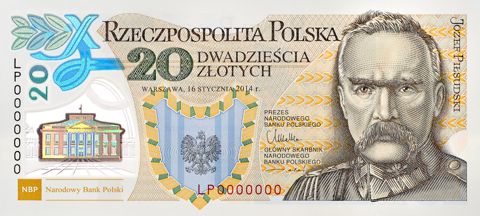
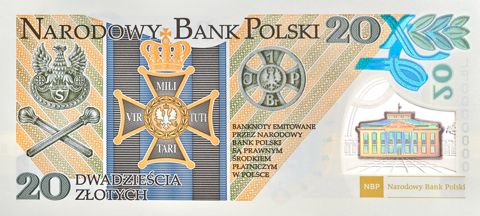
 Last week I wrote about the new
Last week I wrote about the new 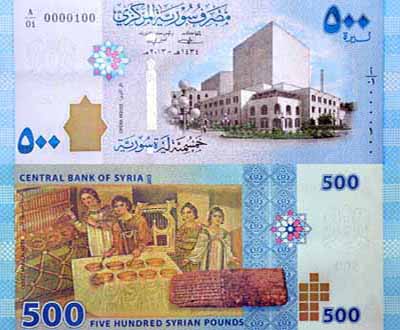

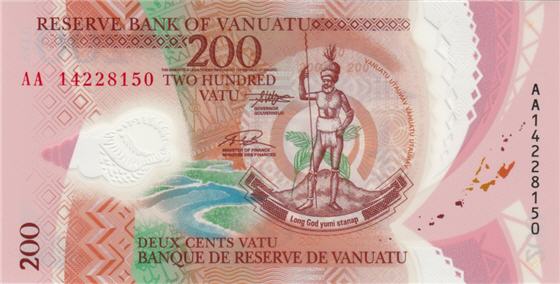
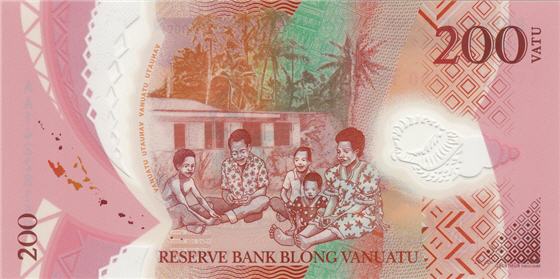
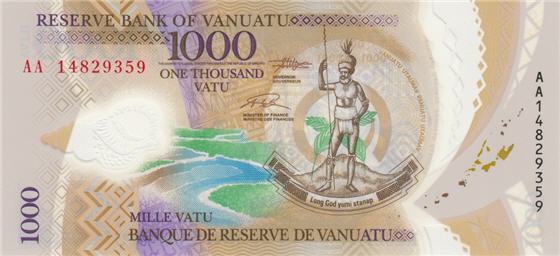
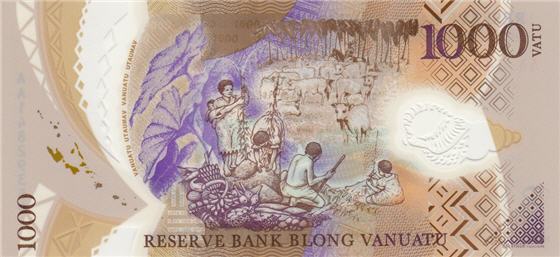
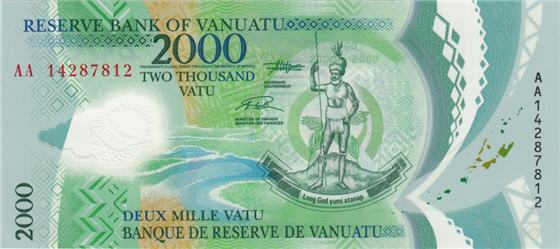
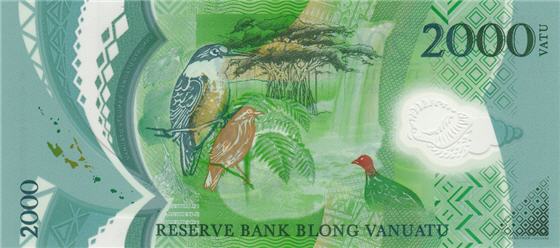
 According to
According to 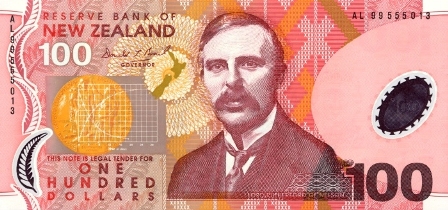
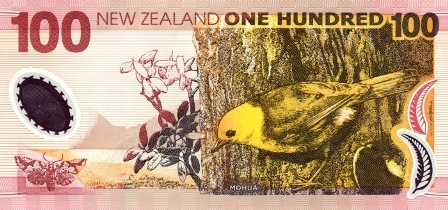
 The
The 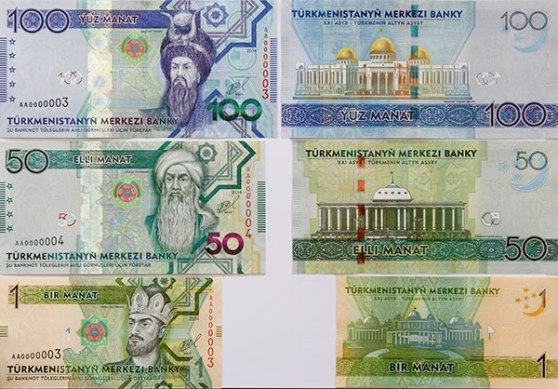
 The
The 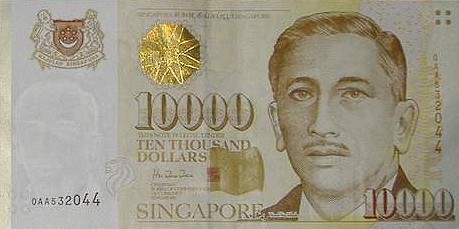
 The
The  General Director Arkady Trachuk of
General Director Arkady Trachuk of  The
The 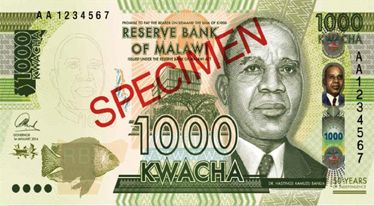
 The
The 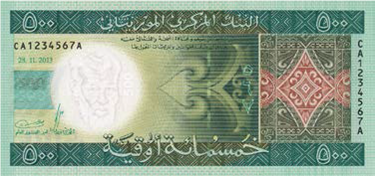
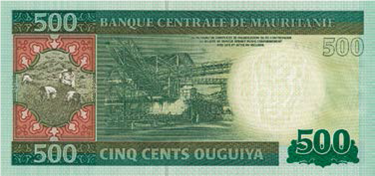
 The president of Argentina, Cristina Fernandez de Kirchner, has
The president of Argentina, Cristina Fernandez de Kirchner, has 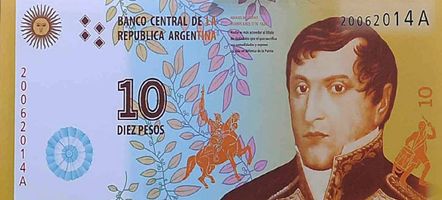
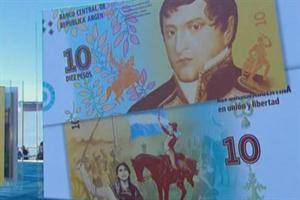
 Just after the news that Scotland will issue the
Just after the news that Scotland will issue the 